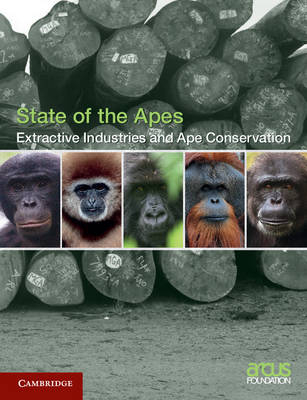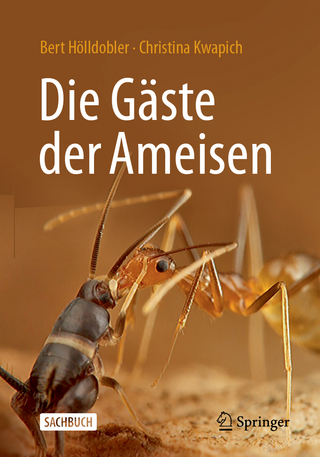
Extractive Industries and Ape Conservation
Cambridge University Press (Verlag)
978-1-107-69621-1 (ISBN)
Current dominant thinking and practice in the private and public sectors asserts that peoples' development needs are in conflict with, or mutually exclusive to, the need to conserve the biosphere on which we depend. Consequently, we are asked to either diminish development in the name of conservation or diminish conservation in the name of development. Efforts to identify complementary objectives, or mutually acceptable trade-offs and compromises indicate, however, that this does not always have to be the case. This first volume in the State of the Apes series draws attention to the evolving context within which great ape and gibbon habitats are increasingly interfacing with extractive industries. Intended for a broad range of policy makers, industry experts, decision makers, academics, researchers and NGOs, these publications aim to influence debate, practice and policy, seeking to reconcile ape conservation and welfare, and economic and social development, through objective and rigorous analysis.
The Arcus Foundation is a private grant-making foundation that advances social justice and conservation goals. The Arcus Foundation works globally and has offices in New York City, USA, and Cambridge, UK.
Foreword; The Arcus Foundation; Notes to readers; Acknowledgments; Introduction; Part I: 1. From global to local: the megatrends at the interface of apes and industry and the case of trade, law, and finance; 2. Land tenure: industry, ape conservation, and communities; 3. Ecological impacts of extractive industries on ape populations; 4. Avoiding the chainsaws: industrial timber extraction and apes; 5. Mining/oil extraction and ape populations and habitats; 6. Artisanal and small-scale mining and apes; 7. The bigger picture: indirect impacts of extractive industries on apes and ape habitat; 8. Case studies of national responses to the impacts of extractive industries on great apes; Part II: 9. The status of apes across Africa and Asia; 10. Status of captive apes across Africa and Asia: the impact of extractive industry; Annexes; Acronyms and abbreviations; Glossary; References; Index.
| Erscheint lt. Verlag | 27.3.2014 |
|---|---|
| Reihe/Serie | State of the Apes |
| Zusatzinfo | 23 Tables, color; 2 Halftones, unspecified; 130 Halftones, color |
| Verlagsort | Cambridge |
| Sprache | englisch |
| Maße | 190 x 247 mm |
| Gewicht | 840 g |
| Themenwelt | Naturwissenschaften ► Biologie ► Humanbiologie |
| Naturwissenschaften ► Biologie ► Ökologie / Naturschutz | |
| Naturwissenschaften ► Biologie ► Zoologie | |
| Sozialwissenschaften ► Soziologie | |
| Technik ► Bergbau | |
| ISBN-10 | 1-107-69621-6 / 1107696216 |
| ISBN-13 | 978-1-107-69621-1 / 9781107696211 |
| Zustand | Neuware |
| Haben Sie eine Frage zum Produkt? |
aus dem Bereich


